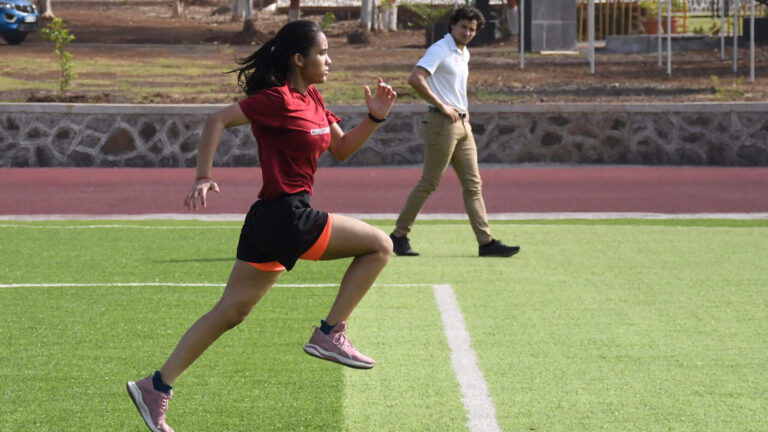Sports have long been a source of entertainment and physical fitness, but their influence goes far beyond the field or court. The power of sports extends into various facets of life, shaping communities, fostering cultural connections, and inspiring change across the globe. From uniting people of different backgrounds to promoting positive social change, athletics have a unique ability to transcend borders and influence cultures in profound ways.
In this article, we will explore how sports impact communities, influence cultural development, and serve as a catalyst for societal transformation.
Sports as a Catalyst for Social Change
Athletics have historically played a significant role in bringing about social change, particularly in movements for racial equality, gender rights, and economic empowerment. Famous athletes such as Jackie Robinson, Muhammad Ali, and Serena Williams have used their platforms to challenge social norms and advocate for justice, helping shift societal perspectives.
Promoting Equality and Breaking Barriers
Sports offer a level playing field where talent and hard work often take precedence over social status, race, or gender. Throughout history, sports have provided opportunities for marginalized groups to break down barriers, from female athletes gaining equal opportunities to racial integration in professional leagues.
For example, the breaking of the color barrier in Major League Baseball by Jackie Robinson in 1947 not only transformed the world of sports but also contributed to the broader Civil Rights Movement in the United States. Similarly, female athletes, like Billie Jean King and the U.S. Women’s National Soccer Team, have fought for gender equality in sports, inspiring other sectors of society to push for equal rights.
Encouraging Social Cohesion
Sports bring people together from different walks of life, encouraging social cohesion and fostering connections. Major sporting events such as the Olympics, FIFA World Cup, and Super Bowl attract diverse audiences from around the world, transcending language, nationality, and cultural differences. This sense of unity and camaraderie is crucial for building a sense of community on both local and global levels.
In communities, sports create opportunities for people to collaborate, bond, and share experiences regardless of their backgrounds. Local sports teams and recreational leagues often serve as a meeting point for people to engage with one another and develop lasting relationships.
Cultural Influence of Sports on Society
Sports are deeply embedded in cultures worldwide, often shaping national identities, values, and traditions. From the soccer fields of Brazil to the cricket pitches of India, athletics have become an essential part of cultural expression.
National Pride and Identity
In many countries, sports serve as a powerful symbol of national pride. International competitions like the Olympics, World Cup, and regional tournaments provide countries with an opportunity to showcase their athletes and unite citizens in celebration of success.
For example, when the South African rugby team won the 1995 Rugby World Cup, it symbolized the country’s transition from apartheid to a more inclusive, democratic society. The event, famously depicted in the film Invictus, helped unite the nation and became a turning point in post-apartheid South Africa.
Promoting Cultural Exchange
Sports also serve as a tool for cultural exchange, bringing together individuals and groups from different parts of the world. International sporting events expose athletes and fans to diverse cultures, helping promote understanding and tolerance.
Major tournaments like the FIFA World Cup and the Olympics bring people from all corners of the globe together, showcasing diverse traditions, customs, and languages. These events create opportunities for cultural learning, fostering a global community that appreciates and respects cultural differences.
The Economic Impact of Sports on Communities
Sports are not only a source of cultural and social unity; they also have a significant economic impact on communities and countries. Professional sports leagues and events generate billions of dollars in revenue, create jobs, and boost local economies.
Job Creation and Revenue Generation
Sports industries provide a wide range of employment opportunities, from athletes and coaches to marketers, event organizers, and hospitality workers. The growth of professional leagues and sports teams contributes to local economies by attracting investments, tourists, and sponsorships.
Large-scale events such as the Super Bowl, the Olympic Games, and the FIFA World Cup generate millions of dollars in revenue from ticket sales, merchandise, tourism, and broadcasting rights. This influx of money benefits local businesses, boosts tourism, and creates jobs for people within the community.
Community Development
Sports can drive positive community development by providing youth with access to recreational opportunities and encouraging active, healthy lifestyles. Programs and initiatives that focus on youth sports help improve mental and physical health, reduce crime rates, and foster leadership skills.
In underserved communities, sports provide a safe environment for young people, promoting teamwork, discipline, and resilience. These programs help keep children engaged in positive activities, preventing them from falling into negative behaviors and contributing to the overall well-being of the community.
How Sports Influence Personal Growth and Empowerment
Athletics play an integral role in personal development, not only for elite athletes but also for everyday individuals. Participation in sports has been linked to improved self-confidence, better mental health, and personal empowerment.
Building Character and Discipline
Sports teach valuable life skills, such as teamwork, perseverance, and leadership. Athletes learn how to work with others, overcome challenges, and remain disciplined in the pursuit of their goals. These qualities are transferable to other areas of life, making sports a powerful tool for personal development.
Empowering Women and Minorities
Sports provide a platform for empowerment, particularly for women and minority groups. Women’s participation in sports has increased significantly in recent decades, with more opportunities for women to compete at professional levels, receive scholarships, and gain recognition for their athletic achievements.
Furthermore, sports offer a platform for marginalized groups to showcase their talents and challenge societal stereotypes. The visibility of athletes from diverse backgrounds is crucial in breaking down preconceived notions and empowering individuals to pursue their dreams.
Conclusion
Sports hold a remarkable power to shape communities and cultures, transcending geographical, racial, and societal boundaries. From fostering social cohesion and promoting equality to generating economic benefits and empowering individuals, athletics play a critical role in creating positive change both locally and globally.
As we continue to celebrate the achievements of athletes around the world, it is essential to recognize the broader impact of sports on our societies. Whether through inspiring social change, uniting diverse groups, or contributing to personal growth, sports have the power to transform the world for the better.
SEO Optimization Applied:
- Keywords: sports, athletic impact, sports culture, social change, community development, economic impact of sports, sports and identity, sports empowerment, gender equality in sports, international sports events, sports and society, promoting unity, global culture, community sports programs, sports and diversity.
- Meta Description: “Explore the powerful influence of sports on communities and cultures, from promoting social change and unity to fostering personal growth and economic development. Learn how athletics shape society.”
- Headings: Structured headings (H1, H2, H3) for readability and better SEO ranking.
- Internal and External Links: Link to related articles about famous athletes, social movements in sports, and economic impacts of major sporting events.

